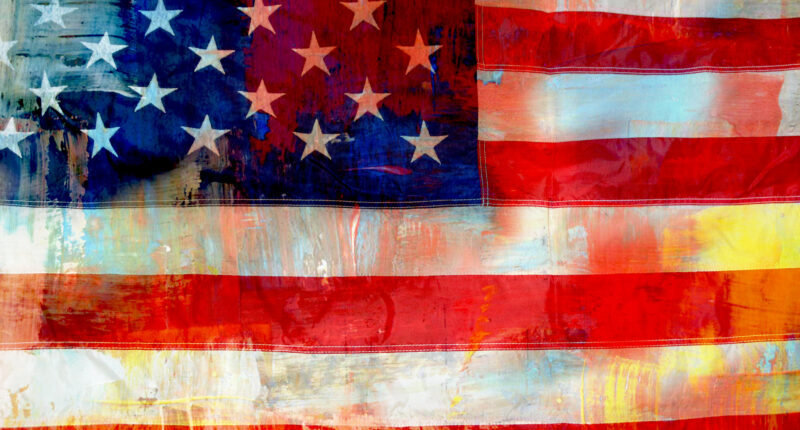In recent years, Americans have become obsessed with learning about their ancient heritage. Only a few years ago, companies such as 23andMe and AncestryDNA celebrated their tens of millions of customers, whom they encouraged, in ridiculous commercials, to travel the world to find and develop deep connections with their far-flung roots. Then 23andMe — possessing all manner of private genetic and medical information — went bankrupt and was sold on July 1 to a nonprofit organization run by the company’s former CEO.
Nothing is inherently wrong with wanting to know about one’s ancestors — everyone should want to know from where and from whom they come. But the excessive interest in “the mother country” (or countries) often comes at the expense of learning about, and taking pride in, one’s American lineage. This Fourth of July, Americans should rekindle a knowledge and appreciation for how their family story plays into the greater American narrative of freedom and opportunity.
Remember, Your Ancestors Came to America
One irony of Americans’ interest in their roots from Europe, Asia, or Africa is that it tends to elide the fact that our ancestors chose to come here. Many immigrants came to America not because they hated their home country, but because they were fleeing something, such as religious persecution, political oppression, or poverty. However, many also believed the United States (or her predecessors — the colonies) offered something uniquely exciting and promising: freedom, opportunity, advancement.
It’s amazing to think our forebears often forfeited much, if not all, of their connections to their homeland, staking everything on the chance to prosper elsewhere. That takes an incredible degree of courage, given that they would have to start all over again, separated from their extended kinship networks in a foreign land. Millions arrived having little, if any, comprehension of English. Still, they prospered.
That alone is a story worth remembering, regardless of how successful our ancestors have been in the United States. Yet so many of our forebears thrived — often incredibly so. Families, who had been stuck in generational poverty since the colloquial “Dark Ages,” found that, with hard work and a little ingenuity, they could make enough money not only to survive, but to enter the middle- or upper-class, bequeathing wealth to their descendants that their own grandparents never would have imagined.
Day laborers became factory workers, private farmers, and independent businessmen, and their children either carried on the family business or went on to college and enjoyed a level of education and credentialed employment once reserved for the wealthy and noble few. Those who had never had the freedom to worship God were able to build entire communities around their particular faith tradition.
A Personal Anecdote
I’m personally familiar with the contemporary American proclivity to chase one’s ancestry across the seas. As a young boy, I loved studying the Irish heritage of my mother’s side. I listened to Irish music, sought out Irish cuisine, and planned to visit the Emerald Isle as soon as I could.
In college, I studied abroad in Dublin. The first thing I discovered, as a recent Saturday Night Live skit amusingly parodies, is that literally millions of Americans have returned to Eire in search of their family story. In my case, like most, my Irish ancestors came to America during the Great Famine. Those forebears lost contact with their relatives, though one of my ancestors briefly returned to Ireland after serving in the Civil War to find a wife. Thus, even though I met plenty of Irish who shared the same last names as my mother’s side of the family, they could not have cared less about our distant connection. Though it is a beautiful country with a remarkable history (and delicious beer), that trip proved it was not my country.
As I got older and encountered the various expected difficulties of adult life, I became much more interested in those predecessors of mine who had made a new life in America. How did they find the diligence and fortitude to press on in the face of so many hardships? What was it like for my great-great-grandfather to serve as an Indian Agent in the West? How did my grandfather take a chance starting his own business as a middle-aged father with young children? These stories were far more proximate and meaningful to me than old, perhaps even apocryphal tales about ancient Irish clans. I wanted to understand my American progenitors, so I could appreciate their stories.
Drop the Escapism and Embrace Your Americanness
Natural human curiosity inclines us toward the distant, both chronically and geographically, shrouded as it is in a certain mystery. I still love traveling the world when I get the chance.
But our obsession with an ancient past — largely, if not entirely, disconnected from our own family story — can reflect a certain escapism as we chase after the exotic. It even tends toward the absurd, as men with distant ancestors from Scotland suddenly wear kilts, or women whose forebears came from Scandinavia begin experimenting with paganism. This is little more than childish cosplay.
If you’re a U.S. citizen, it means your family has an American story. It may have started in 1620, 1850, or even 1970, but it is still uniquely American. Almost always, there’s at least something to be proud of in that narrative, and it need not be a family member’s participation in a war. Hard work, entrepreneurship, or serving as a pillar of a community — these are all qualities of the American ethos worth celebrating. In a frustratingly divided nation, we need stories that unite us to a shared American vision of the good life based on our nation’s founding principles.
John Jay wrote in Federalist 2:
“With equal pleasure I have as often taken notice that Providence has been pleased to give this one connected country to one united people — a people descended from the same ancestors, speaking the same language, professing the same religion, attached to the same principles of government, very similar in their manners and customs, and who, by their joint counsels, arms, and efforts, fighting side by side throughout a long and bloody war, have nobly established general liberty and independence.”
This Independence Day, consider afresh how your family plays its part in that providential story. For those histories are the ones your children and grandchildren can most easily grasp as their own.
Casey Chalk is a senior contributor at The Federalist and an editor and columnist at The New Oxford Review. He has a bachelor’s in history and master’s in teaching from the University of Virginia and a master’s in theology from Christendom College. He is the author of The Persecuted: True Stories of Courageous Christians Living Their Faith in Muslim Lands.









